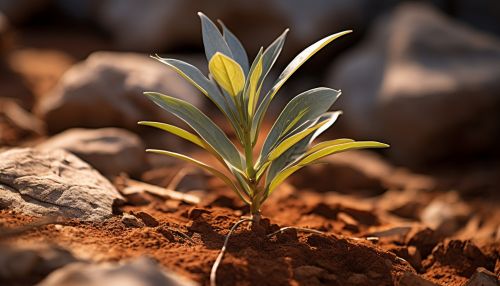Physiological Ecology
Introduction
Physiological ecology, also known as ecophysiology, is a biological discipline that studies the adaptation of an organism's physiology to environmental conditions. It is closely related to ethology, evolutionary biology, and ecology, as it attempts to understand the complex link between organisms, their physiology, and their environment.
Physiological Adaptations
Physiological adaptations are changes in an organism's metabolic processes, which allow the organism to cope with changes in its environment. These adaptations can be either temporary or permanent, and they can occur at any level of the organism's biological organization, from the cellular level to the whole organism level.


For example, desert plants such as cacti have evolved physiological adaptations that allow them to survive in arid conditions. These adaptations include thick, waxy leaves to reduce water loss, deep roots to access groundwater, and the ability to store water in their tissues.
Homeostasis
In physiological ecology, homeostasis is a key concept. It refers to the ability of an organism to maintain a stable internal environment, despite changes in external conditions. Homeostasis involves a range of physiological mechanisms, including feedback loops, which help to regulate an organism's body temperature, pH levels, and other vital functions.
Thermoregulation
Thermoregulation is a critical aspect of physiological ecology. It involves the processes that allow an organism to maintain its body temperature within certain boundaries, even when the surrounding temperature is very different. This can involve both behavioral adaptations, such as seeking shade or burrowing underground, and physiological adaptations, such as changing metabolic rates or altering blood flow.
Water and Salt Balance
Maintaining water and salt balance is another crucial aspect of physiological ecology. Organisms need to regulate their water and salt levels to prevent dehydration or salt toxicity, which can be fatal. This involves a range of physiological mechanisms, such as the production of concentrated urine in mammals, or the excretion of salt through specialized cells in marine animals.
Energy Balance and Metabolism
Energy balance and metabolism are also key areas of focus in physiological ecology. Organisms need to balance their energy intake (through food) with their energy expenditure (through physical activity and metabolic processes) to survive and reproduce. This involves a range of physiological mechanisms, including digestion, respiration, and thermogenesis.
Physiological Ecology and Climate Change
Physiological ecology is particularly relevant in the context of climate change, as it can help us understand how organisms will respond to changes in temperature, precipitation, and other environmental factors. For example, by studying the physiological adaptations of polar bears to cold environments, we can predict how they might be affected by global warming.
